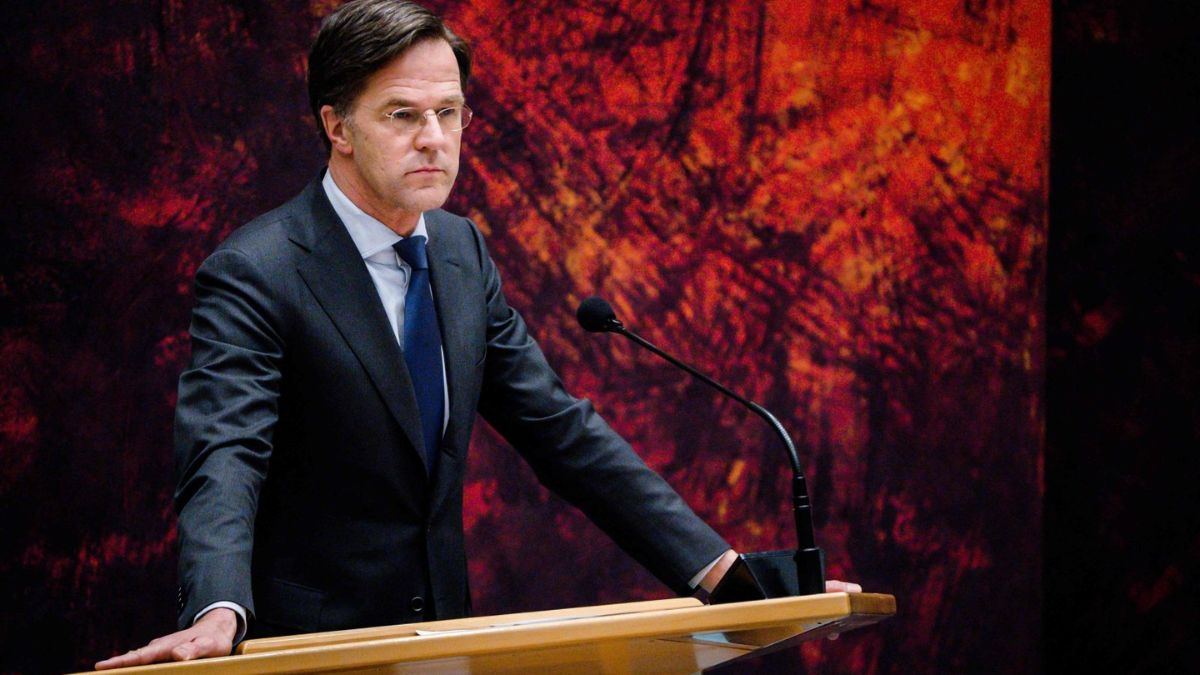Former Netherlands Prime Minister Mark Rutte on Tuesday took over as the Secretary General of North Atlantic Treaty Organisation (NATO).
Rutte has taken over NATO at a critical juncture as Russia’s ongoing war on Ukraine has plunged Europe in the worst security crisis since the World War II. The alliance is also uncertain about the continued US support in case Donald Trump wins the November election.
Rutte’s campaign for NATO leadership was smooth as he secured support from most of the NATO leaders — most of whom he already knew from his 13-year-long prime ministerial tenure. He also had the support of US President Joe Biden.
Even though the succession has been smooth, Rutte’s term is set to be a rocky ride and there is no honeymoon period. Here are the five challenges he faces.
Balancing act within Europe & North America
Even as Rutte enjoys good relationship with German Chancellor Olaf Scholz and Italian Prime Minister Giorgia Meloni, he has an uneasy relationship with French President Emmanuel Macron and Hungarian PM Viktor Orban.
The far-right Orban has been at odds with most European mainstream leaders over his support of Russia and friendship with Vladimir Putin. He has also been critical of the support of Ukraine. Hungary has long been a sticking point in consensus-building regarding security policy at the European Union (EU) and NATO.
Rutte would need to smoothen out the ties with these key leaders if he has to unite the bloc against Russian — and its ally China.
Impact Shorts
More ShortsAs he takes over at such a crucial time, striking a balance and building a consensus among the European and North American NATO members will be at the top of Rutte’s agenda.
As autocratic regimes of Russia, China, Iran, and North Korea work to disrupt the international order, Rutte’s ultimate goal must be to keep the democracies of Europe and North America together, noted Oana Lungescu, a Distinguished Fellow at the Royal United Services Institute (RUSI), in an article.
Europe’s immigration woes
Immigration has become one of the central issues in Europe in recent years.
The hardening of public opinion on illegal immigration, and perceived failure of mainstream leaders to check it, has fuelled the rise of far-right in Europe. This has a direct impact on security as a large section of far-right is pro-Russia and opposes security preparations against Russian aggression and support of Ukraine.
Immigration is bound to be in Rutto’s top agenda. He and Meloni agree that asylum applications should be processed in a third country outside EU.
Keeping NATO afloat if Trump wins US election
Just five weeks after NATO new chief’s appointment, the United States will elect the next president.
For NATO, it should be things as normal if Democratic nominee Kamala Harris wins. However, if Trump wins, then NATO may not have assured US support.
Trump has embraced isolationism and has previously warned he would allow Russia “to whatever the hell they want” with an ally if they don’t raise military spending to his liking. He and far-right ‘Make America Great Again (MAGA)’ movement are opposed to supporting Ukraine and engaging in conflicts abroad. The isolationism has raised fears in Europe that Trump may pull the plug on NATO and leave the continent undefended against Russia.
Rutte will have the crucial responsibility of keeping NATO float even if Trump wins the presidential election. While he would definitely try to convince Trump to keep up the support, he would also press NATO nations to hike their defence spending to the preferred 2.5 per cent of the gross domestic product (GDP) to placate Trump. He is likely to try to find a common ground with Trump to continue keeping the trans-Atlantic alliance strong.
A potential second Trump term could prove much more disruptive, with less US aid to Ukraine, more concessions to Russia, and further questioning of the value of NATO on the cards, noted Lungescu of RUSI.
“Regardless of who is elected in November, the alliance will need to step up defence spending and support to Ukraine. It will also need to do more to counter China’s influence, and put more substance into its partnership with democracies in the Indo-Pacific, in order to show it understands Washington’s concerns and to help maintain global stability,” noted Lungescu.
Helping Ukraine defend against Russia — but not expanding the war
Rutte is a staunch supporter of Ukraine in the war with Russia. He will face a challenge in keeping the support to the war-ravaged nation steady and yet prevent the spillover of the conflict.
Even as Europe and the United States have been committed to providing Ukraine with weapons, intelligence, and training, they have made it clear that they will not join the war from Ukraine’s side. Yet Russia has repeatedly threatened expanding the war to Ukraine’s allies — including threatening the use of nuclear weapons against the United Kingdom and other partners.
Rutte will face the challenge of building consensus for the support of Ukraine and figuring out how to best support the war-ravaged nation that does not expand the war.
Focus on Europe, distance from Middle East & South China Sea
Even as a full-fledged war rages in Middle East and another conflict brews in the Middle East, observers note that NATO must stay focussed on Europe.
However, such a focus is not given as NATO may become distracted and get involved in confronting China and Iran in Asia and Middle East respectively — particularly as member-states like the United States and United Kingdom are invested in these conflicts.
As a bloc, however, observers note that NATO should remain focussed in Eirope and that will be one of Rutte’s challenges.
)